According to the latest polls, the Alliance for the Union of Romanians (AUR), born in 2019, would be the first choice for the majority of Romanians in the next European elections, and could win up to 12 MEPs. Behind are the parties that currently form the government, the Social Democratic Party (PSD, a member of the Progressive Alliance of Socialists and Democrats) with 9, and the National Liberal Party (PNL, which belongs to the European People's Party) with 8.
The corruption of the Romanian socialists, one of the most common characteristics of socialist governments, as we have seen until recently in Portugal or as we see daily in Spain, has taken its toll on the credibility of Klaus Iohannis’ coalition government. In response to the growth of the AUR, the Socialists and the People’s Party have decided to contest the European elections together, an unprecedented move, and also to bring forward the municipal elections to coincide with the European elections.
According to Claudiu Tarziu, Chairman of the AUR’s National Council and its leader in the Romanian Senate, these moves are aimed solely at preventing the AUR from becoming the winner of the June elections: “They have announced that they will run on joint lists in the European Parliament elections. This is absurd. On the other hand, neither good practice nor even the law prohibiting the possibility of changing the electoral calendar at such short notice prevented these two corrupt parties from deciding to do so. The only reason why the Social Democratic Party and the National Liberal Party made this merger between two types of elections with extremely different rules is because the Socialists and the Liberals, controlled by President Iohannis, believe that this is the only way they can prevent the AUR party from winning the elections”.
However, it seems highly unlikely that these manoeuvres will prevent AUR's electoral success in the local and European elections. In Brussels, AUR wants to join the European Conservatives and Reformists Group (ECR), and has a very good relationship with its president, Giorgia Meloni. A group that could become the third or fourth European political force in an election in which the electorate is expected to make a significant shift to the right. During CPAC, held in Washington last February, an AUR delegation was present at the convention to strengthen the party's international presence and establish collaborative ties with the Republicans, and coincided with delegations from different ECR parties. For Tarziu, “it was an excellent opportunity to meet with Republican and conservative partners and spread our message. We also met many friends from the ECR group, who have the same vision as ours and with whom we have to fight in the future European Parliament”.
Trump’s statements about NATO have caused alarm in many European countries and are also used by the media, which brand any politician or party that has a relationship with the Republican candidate as practically a “friend of Putin”. The same has happened in Romania, where the media have harshly criticized AUR’s presence at the convention. "Trump has said that NATO member states must honor their commitment to defence spending. Is he right or wrong? Yes, he is”, says Tarziu. “For this Alliance to function fully, its member states must do what is necessary. As I see it, Donald Trump has done nothing more than advocate out loud what others only think”.
However, the biggest attacks so far against the AUR have come in the wake of a speech delivered by Claudiu Tarziu on the occasion of the 165th anniversary of the unification of Moldova and Wallachia. Several media outlets picked up on the speech and accused Tarziu of wanting to annex Ukrainian territories in collusion, of course, with Putin. “What I said”, Tarziu stressed, “is that we cannot give up our national ideal of reunifying Romania within its historical borders, and that only this natural reunification can make us truly sovereign. I never spoke of ‘annexation’, and I made no reference to NATO or to the hypothesis that Romania might leave the North Atlantic Alliance, our main security guarantor. It was pure intoxication. For the AUR party, Romania as a NATO member is the only strategic choice, and our national interest is absolutely to be part of this Alliance with its rights and obligations. But our ideal of Romania-Moldova reunification is legitimate and we must fully support it”.
Regarding collusion with Putin, Tarziu is very clear in his opinion on the Russian invasion: “Our position has been and remains the same: we strongly and unequivocally condemn Vladimir Putin’s unjustified aggression against Ukraine. This is a criminal act, which no rational human being can condone or tolerate, ordered by a state leader who pursues a cruel and imperialist policy”.
For Tarziu, this is a campaign orchestrated by “his political opponents and agents of influence in the mainstream media, who have attacked me by manipulating and distorting my entire speech. All the accusations and misinformation spread by these liars are related to their growing fear that AUR, the only sovereigntist and conservative force in Romania, will win the elections and achieve what others have only pretended: a strong Romania within the EU”.
Campaign or no campaign, AUR continues to lead in the polls and, like other conservative forces in several European countries, can turn Romania's political chessboard upside down. What is clear is that if these expectations become a reality in a year when Romanians are called to vote in European, local, general and presidential elections, AUR will be a key player in Romania’s future.
Read also
The Martyrdom of the Ulma Family
On 24 March 1944, German police raided the Ulma family farm in Markowa, Poland.
Álvaro Peñas
Alejandro Peña Esclusa: “Fraud is a crucial issue for the future of democracy in the West, because democracy is literally being stolen from us”
Interview with Alejandro Peña Esclusa, engineer, writer, analyst and political consultant. A pioneer of the first protests in his country against the Chavista regime, he was imprisoned for a year in El Helicoide (a prison notorious for its torture) and is still a political prisoner of conscience. An expert on the Sao Paulo Forum, he has written several books on the subject and has just published “Los Fraudes Electorales del Foro de Sao Paulo” (The electoral frauds of the Sao Paulo Forum).
Álvaro Peñas
The Tsar’s Penal Army
“I had been in the colony (prison) for four and a half years when Wagner came to recruit us.
Álvaro Peñas
Pedro Fernández Barbadillo: “The Left has always known how to support its own; on the Right there are many who have yet to learn this lesson”
Pedro Fernández Barbadillo is a journalist and contributor to various media, such as “Libertad Digital”, “Actuall” or “Informa Radio”.



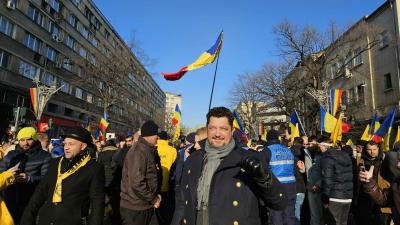


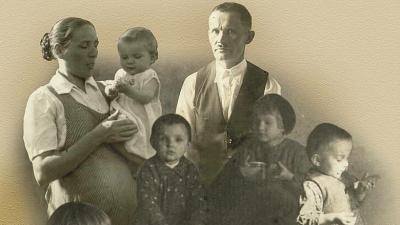

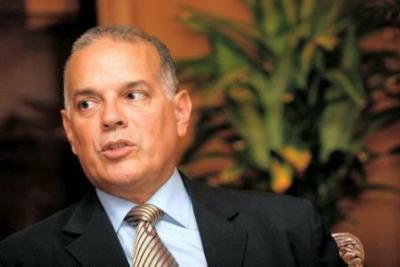

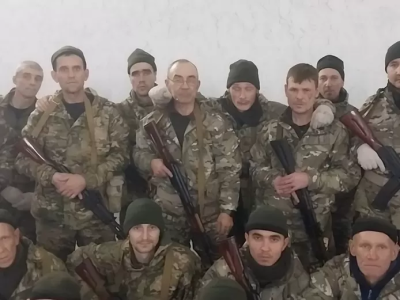

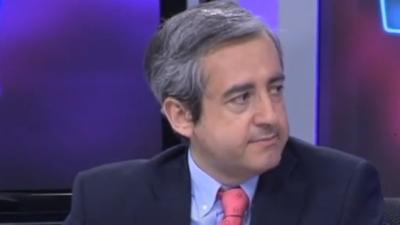

Comments (0)